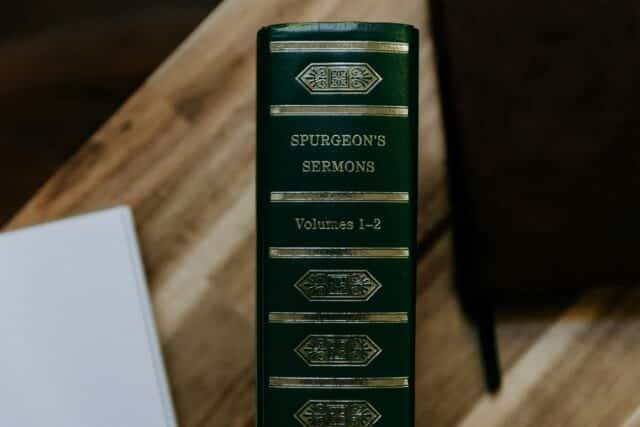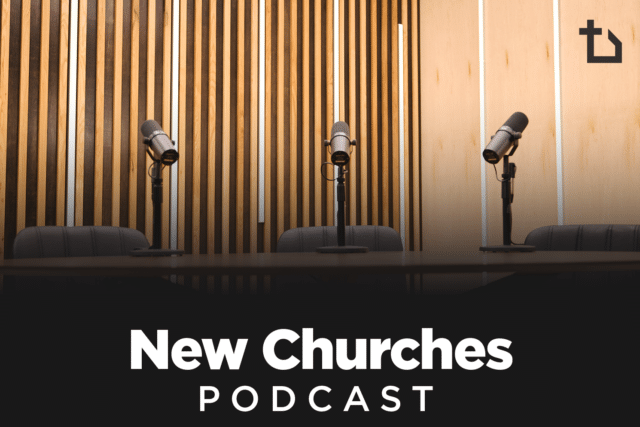Article
3 Prayer Habits Spurgeon Wanted for Planters
Faithful and effective church planters must be men of prayer.

Faithful and effective church planters must be men of prayer. You can only be faithful and effective when you pray to the Faithful One, to the Effector of gospel ministry.
Charles Spurgeon taught his students in his Pastors’ College to be devoted to private prayer. Here are a few things Spurgeon would tell every planter about prayer.
Lead in Private Prayer
Spurgeon would exhort church planters to embrace the calling and practice of leading in prayer, not only leading prayers in public but leading by being in private prayer more than everyone else. Spurgeon said about pastors, “He prays more than ordinary Christians, else he were disqualified for the office which he has undertaken.” Let that sink in.
The reason Spurgeon made such a strong statement is because he thought the root cause of diminished prayer in a pastor is pride: “The minister who does not earnestly pray over his work must surely be a vain and conceited man. He acts as if he thought himself sufficient of himself, and therefore needed not to appeal to God.” For Spurgeon, if a pastor is not seeking God’s wisdom, help, and power for the ministry, that pastor is full of himself. What other deduction can we make? Spurgeon is right. God, help us.
Spurgeon is capturing the point of the apostle Paul’s words, “Pray without ceasing” (1 Thessalonians 5:17). We know this doesn’t mean you never stop praying or that all you do is pray. Paul is pointing to a spirit, a posture, a regular reflex that goes to God in prayer at any time, in any place. Spurgeon described what this looks like for a pastor:
He is not always in the act of prayer, but he lives in the spirit of it. If his heart be in his work, he cannot eat or drink, or take recreation, or go to his bed, or rise in the morning, without evermore feeling a fervency of desire, a weight of anxiety, and a simplicity of dependence upon God; thus, in one form or other, he continues in prayer. If there be any man under heaven who is compelled to carry out the precept—“Pray without ceasing,” surely it is the Christian minister.
Planters ought to be men who pray without ceasing. As you engage in evangelism, mercy ministries, leadership development, pastoral care, and sermon prep, how can we not be chronically calling on God?
Private Prayer for the People
Spurgeon would counsel every planter to be devoted to private prayer because of the nature of the work. You pray for converts, you pray for God’s help in your leadership, and you pray for God to bless your home. And you also ought to be in private prayer for the people you are pastoring. Spurgeon exhorts you to remember the people setting up, serving, and listening to the sermons—pray for them in private. Spurgeon said:
Look at your congregation. There are always sick folk among them, and many more who are soul-sick. Some are unsaved, others are seeking and cannot find. Many are desponding, and not a few believers are backsliding or mourning. There are widows’ tears and orphans’ sighs to be put into our bottle, and poured out before the Lord. If you are a genuine minister of God, you will stand as a priest before the Lord, spiritually wearing the ephod and the breastplate whereon you bear the names of the children of Israel, pleading for them within the veil.
There are a variety of needs, situations, and conditions of the soul as you look out over the congregation. A true planter isn’t just thinking about growing the congregation—he wants to see the congregants grow in Christ. A true planter is praying for whatever ails his people.
- Do you keep a record of these needs? Do you know them?
- How will you discipline yourself to lift them up in private prayer?
Private Prayer for the Pulpit
Preaching needs to be surrounded by prayer. Spurgeon exhorts planters to never neglect private prayer for sermon prep. It’s a misstep to quickly run to exegesis, outlines, and commentaries. Begin in prayer. Stay prayerful. The “prayer closet” is the best library. Spurgeon said, “The closet is the best study. The commentators are good instructors, but the Author himself is far better, and prayer makes a direct appeal to him and enlists him in our cause.”
As you prepare your sermons, pray this way:
- Before you begin: “Lord, thank You for the sacred stewardship of declaring Your word. Help me to see what this text is about. Spirit, illuminate my understanding. Show me what is here. Jesus, help me to make much of You, to make You known, and enjoy You in this passage.”
- While preparing: “Lord, help me with this part …” or, “Lord, I’m tired …” or, “Lord, how should this be applied?” Ask for help.
- When finished: “Lord, save people! Lord, sanctify Your people! Lord, bless the church in the hearing of Your word. Help me, Lord. Keep me from error. Keep me from me. Don’t let the devil steal any seeds today.”
Spurgeon believed that private prayer—communion with God—was the best sermon help you could ever have. He said:
Prayer will singularly assist you in the delivery of your sermon; in fact, nothing can so gloriously fit you to preach as descending fresh from the mount of communion with God to speak with men. None are so able to plead with men as those who have been wrestling with God on their behalf.
“The fact is,” said Spurgeon, “the secret of all ministerial success lies in prevalence at the mercy-seat.” There truly is not a situation in your plant where prayer isn’t needed. Well, maybe one. You don’t need to pray this: “Lord, should I pray more?” You know the answer. Yes.




